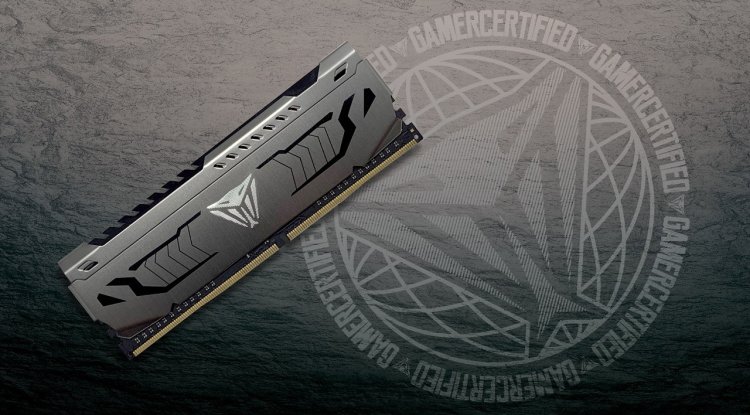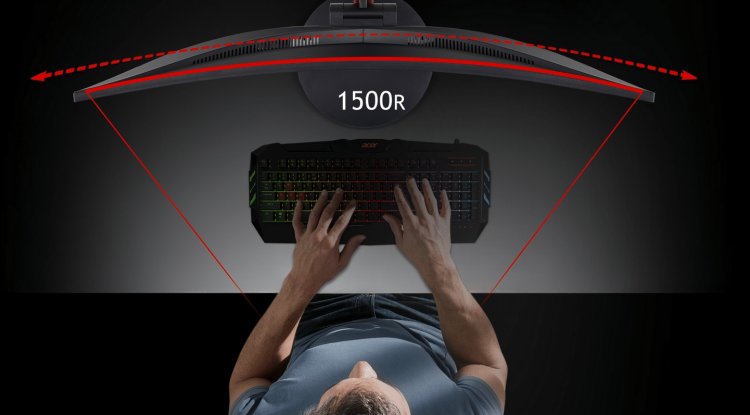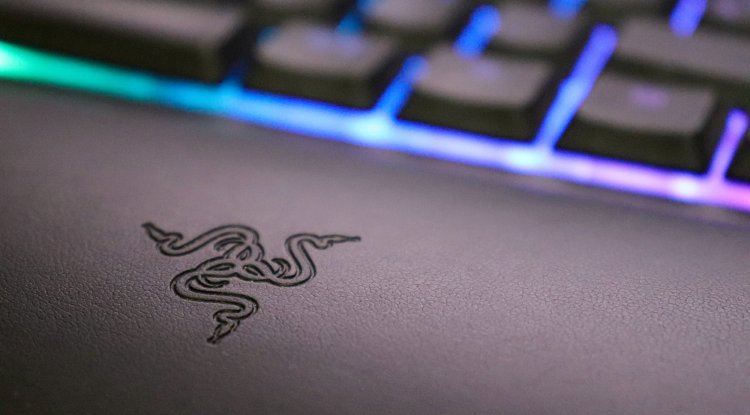Patriot Viper Steel DDR4 4400 16 GB - Quick poison
Although Patriot's Viper Steel memory is not a new product, its capabilities still belong to the top of the DDR4 memory range.

Although Patriot's Viper Steel memory is not a new product, its capabilities still belong to the top of the DDR4 memory range, which is primarily due to the use of Samsung's legendary B-die chips.
| Type | DDR4 DIMM |
|---|---|
| Capacity | 2 × 8 GB |
| Chip configuration | Samsung B-Die, 1 rank |
| XMP profiles | DDR4 4400 19-19-19-39-69 @ 1.45 V DDR4 4266 19-19-19-39-133 @ 1.35 V |
| Warranty | 10 years |
The era of DDR5 memory is getting closer, but the good old DDR4 will be the primary choice of users for a relatively long time. This type of memory is in decline, but it also means that it is at its peak in terms of technology and optimization. A good example of such a super-optimized memory is the 16 GB Viper Steel DDR4 4400C19 memory kit, which came to us from Patriot Memory. As you probably know, the maximum standard speed of DDR4 memory is 3,200 MT / s, so it is necessary to use special settings (XMP) and higher operating voltages for such and similar memory.
The Viper Steel series is equipped with beautiful natural-colored metal coolers, decorated with the Viper logo - a stylized snake's head with a protruding tongue. A sticker with the same red logo arrives in the memory package. Many users will surely like the fact that Viper Steel modules do not have RGB lighting. The height of the refrigerator is moderate.
Below the cooler are Samsung's DDR4 B-die chips in a 1Rx8 ( single-rank configuration), but the modules do not have an integrated temperature sensor. Note that other (slower) variants of Viper Steel memory are not based on such Samsung chips. B-die chips are known to be the best for overclocking, so it's no surprise that on these modules we find two sets of XMP settings at a fairly high speed - 4,400 MT / s, with CAS 19 and 1.45 V, and a secondary XMP profile speed of 4,266 MT / s, with CAS 19 and a voltage of 1.35 V. The problem with modules configured for such high speeds is that many boards will not accept them without additional manual adjustment of options in UEFI, and often even then. The Patriot doesn’t offer a list of compatible motherboards, but by all accounts, the board we tested, the ASRock’s Z590 Steel Legend combined with the Core i9-10850KF processor, isn’t among them.
The computer did not "wake up" on any of the XMP profiles until the memory speed was lowered to 4,133 MT / s while maintaining the same latencies as on the XMP profile, but the same voltage level of 1.45 V. Some boards, in parallel with the memory voltage, increase both the VCCSA and VCCIO voltages, but ours did not. We tried to increase them manually, but that didn't help the memory work on the XMP profile. Additionally, we managed to reduce latencies at the same clock speed to CAS 16, which resulted in a small increase in performance.
4133 C19 | 4133 C16 | 3600 C16 | |
| Blender Benchmark * | |||
| bmw27 | 2:27 min | 2:27 min | 2:26 min |
| 7-zip | |||
| Compression | 70,569 MIPS | 76,160 MIPS | 67,579 MIPS |
| Decompression | 107,436 MIPS | 108,675 MIPS | 106,846 MIPS |
| Procyon Photo Benchmark | |||
| Photoshop | 8,037th most common | 8,164th most common | 8,033th most common |
| Lightroom Classic | 8,067th most common | 7,998th most common | 7,837th most common |
| Games @ 1080p Ultra | |||
| Borderlands 3 | 169 fps | 172 fps | 169 fps |
| Metro Exodus | 123 fps | 123 fps | 122 fps |
| Year 1800 | 186 fps | 185 fps | 185 fps |
Of course, the question arises as to how much such memory speeds up the computer compared to some lower speed. Therefore, we further reduced the clock to the level of 1,800 MHz, or 3,600 MT / s, while maintaining the latencies of CAS 16, and measured the performance at such settings. Although due to time constraints we have not tested the memory on the Ryzen platform, there is no reason why such memory would not be brilliant on it. Namely, it is known that AMD's processors are more sensitive to clock and memory latencies than Intel's, which means that with such kits we can get even more performance. Admittedly, it is certain that the maximum memory clock would be significantly lower due to the limitations of the Socket AM4 platform (Infinity Fabric interface clock), but in the context of such memory, this is not a problem because latencies could be further tightened, which suits Ryzen. Finally, we must praise the price - it is significantly lower than the price of similar modules from other manufacturers. Pros
- Samsung B-Die chips
- Excellent overclocking potential
- Nice refrigerators
- Price compared to similar modules
- Very long warranty
- XMP profiles will not be compatible with many boards
You can buy this product on Newegg for $ 70.





































